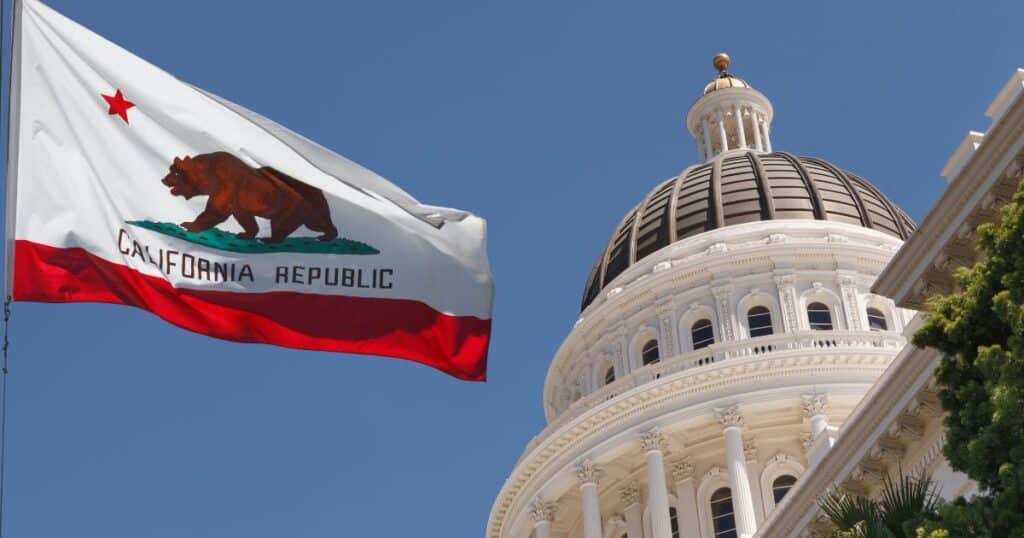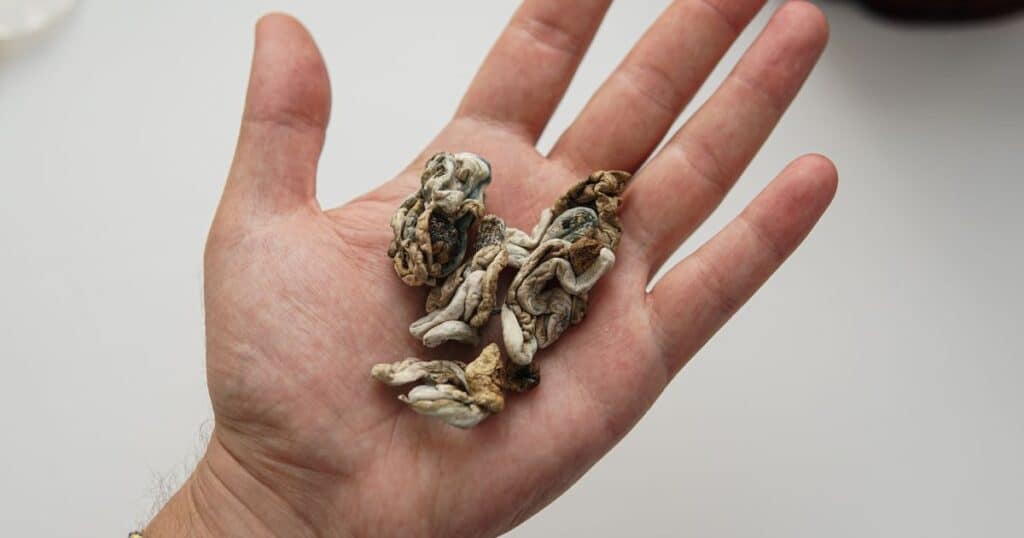The state of California has been at the forefront of discussions surrounding the use of psychedelics for medicinal and therapeutic purposes. In recent years, there have been several efforts to decriminalize and regulate these substances, with the latest being the proposed Psychedelic Wellness & Healing Initiative.
This initiative has gone through several revisions and is now in its final version, ready to be submitted for fiscal analysis and certification for circulation. However, in order for it to make it onto the ballot, supporters will need to gather 500,000+ signatures.

In October 2023, Governor Gavin Newsom vetoed Senate Bill 58, which would have allowed the use of psychedelics for therapeutic purposes, the governor expressed that he wanted the legislature to send him a new bill next year establishing guidelines for regulated therapeutic access to psychedelics and also consider a “potential” framework for broader decriminalization in the future.
This decision had a significant impact on the proponents of the Psychedelic Wellness & Healing Initiative, who were counting on this bill to pass. The veto prompted them to file their own initiative, with revised language and provisions, in hopes of making it onto the ballot and bringing much-needed change to the state’s approach to psychedelics.
As a result, this initiative is now even more crucial for supporters to gather enough signatures and show their support for its implementation. Although Governor Newsom’s veto may have been a setback, it has only fueled the determination of those pushing for the initiative’s success.
With the proposed changes and revisions, this final version of the initiative is poised to make a significant impact on the future of psychedelic therapy in California. However, it will require strong support from individuals and organizations to overcome any potential challenges.
Psychedelic Wellness & Healing Initiative
The proposed Psychedelic Wellness & Healing Initiative aims to regulate the sale, possession, and use of psychedelics for medicinal and therapeutic purposes in California. This includes substances such as psilocybin (found in magic mushrooms), MDMA (commonly known as ecstasy), DMT, and mescaline. Under this initiative, doctors and mental health specialists will be able to recommend these substances for a range of medical conditions, providing another option for patients struggling with mental health issues.
Additionally, the initiative also includes provisions for the decriminalization of entheogenic plants on one’s own property, allowing individuals to cultivate and consume these plants without fear of legal repercussions. These changes have been made in an effort to provide safe and regulated access to these substances, promoting responsible use and potentially life-changing benefits for those in need. So far the initiative has received strong support from individuals and organizations alike, but it will take more effort to gather the required number of signatures to bring about real change.
Marijuana Moment outlines what changes that would be made under the proposed Psychedelic Wellness and Healing initiative:
- Simple use and possession of psychedelics at a person’s home would be declared lawful. The change would apply to all “hallucinogenic substances” as identified under California law, a list that includes DMT, ibogaine, LSD, mescaline, psilocybin, psilocyn and MDMA.
- Adults could possess “as much entheogenic substances as is needed for one’s own annual personal use.”
- Cultivation on private property of psychedelic plants and fungi would be legal provided it’s done out of public view and with consent of the owner. Further, the proposal would limit state and municipal authorities from prohibiting cultivation through nuisance laws or through “impracticable” regulations.
- Beginning on January 1, 2025, any entheogenic business could begin cultivation, manufacture or wholesale distribution of psychedelics provided it operates on land zoned for commercial agriculture and approved by the California Department of Food and Agriculture for food production.
- Beginning on April 19, 2025, any incorporated business in California with a state seller’s permit—required of most retail businesses—could begin sales of psychedelic products to qualified patients or their designated caregivers.
- The proposal says that “nothing in this Article shall prevent any church, spiritual organization, indigenous group, or any individual from using entheogenic plants or substances as a sacrament in their own religious or spiritual practice.” Definitions for such practices are not provided.
- With approval from local voters, a municipal tax of up to 10 percent could be applied to psychedelics products sold for medical or therapeutic use.
- The sale or use of endangered species or any parts thereof would not be allowed “unless the producer can demonstrate that the species, or part or product thereof, was farmed in a sustainable way and not harvested in the wild” and does not negatively affect the species in its natural habitat.
- While doctors could recommend psychedelics for any “physical or mental illness” for which the substances provide relief, specifically listed qualifying conditions would include: PTSD, depression, anxiety, addiction, suicidality, spiritual development, obsessive-compulsive disorder, chronic and acute pain, inflammatory disorders, Alzheimer’s disease, Parkinson’s disease, traumatic brain injury and migraines.
- No healthcare practitioner would be “punished, or denied any right or privilege, for having recommended entheogenic plants or substances.”
- The state Department of Public Health could promulgate regulations to implement the state framework, but “the rulemaking process shall not unreasonably delay implementation.”
- Businesses would be regulated “as closely as practicable to non-psychoactive agriculturally produced products” with the exception of warning labels in English and Spanish that would be required on psychedelic product packaging.
- The state would be required to allow research into psychedelics, for example by allowing healthcare practitioners to use and deliver psychedelics to patients as well as to recommend their use.
- Doctors could recommend psychedelics to minors for the treatment of “specific and appropriate conditions” that are “severe and life threatening” with the consent of a parent or guardian and the minor’s primary care physician.
- The state Department of Consumer Affairs and the Health and Human Services Agency would need to adopt and implement qualifications requirements for psychedelic-assisted therapy “created by an independent professional certifying body.”
- Municipalities could ban or limit the number of psychedelics businesses with approval of voters, but they could not prohibit individual or group activities permitted under the proposal.
- The “mere presence” of psychedelics in compliance with the updated law could not be used to make a determination under state law of risk of harm to a child, nor could it be used to diminish parental rights or justify the removal of a child from the home.
- Minors could be penalized for psychedelics-related activities without parental consent, but “the maximum penalty for such offense shall be no greater than a mandatory drug education program, and no conviction shall remain on the juvenile record of such a minor.”
- Adults who provide entheogens to a minor who is not a qualified patient would be guilty of a misdemeanor and subject to a fine of up to $1,500 for a first offense and $3,000 for subsequent offenses.
- For people serving criminal sentences for convictions over conduct that would be a lesser offense under the initiative, a court would need to grant a recall or dismissal of the sentence and allow for resentencing, with no hearing necessary. After completing a sentence, records of certain convictions could be sealed.
Signatures Needed
The Final Version of Psychedelic Health and Wellness Initiative has been submitted in California, but it still needs to gather 546,651 valid signatures by April 2024 to qualify for placement on the 2024 ballot. This is no small feat and will require significant efforts and financial support from supporters of the initiative.
To gather the required number of signatures, supporters will need to raise funds for activities such as door-to-door canvassing, collecting signatures at events and public places, and hiring professional signature gatherers. The Church of Ambrosia, a proponent of the initiative, has been instrumental in providing financial support for these efforts.
Dave Hodges, the founder of the Church of Ambrosia told Marijuana Moment earlier this year that he expects members of the Church of Ambrosia—a nondenominational, interfaith religious organization that supports the use and safe access of psychedelics—to support the reform financially.
However, financial support alone will not be enough. The signature gathering process also relies heavily on volunteers who are willing to help collect signatures from registered voters. This is a crucial step in the democratic process and one that requires the support of the community.

The Final Version of Psychedelic Health and Wellness Initiative in California has the potential to bring about significant change for individuals suffering from various mental health conditions and chronic pain. By regulating and providing access to psychedelics for medicinal and therapeutic purposes, the initiative aims to improve the lives of many Californians.
However, for this initiative to successfully make it onto the ballot and ultimately become law, it requires the support and participation of the community. We encourage individuals to stay updated on the progress of the initiative and to actively participate in signature gathering efforts.
Every signature counts towards making a positive impact in the lives of those who can benefit from psychedelic-assisted therapy. Join us in supporting this important cause for the health and wellness of all Californians. So, if you have the opportunity to sign and support the initiative, we urge you to do so. Together, we can create a better future for ourselves and our loved ones. Let’s make psychedelic-assisted therapy accessible and regulated in California.
Keep updated on all the latest news and updates in the Cannabis industry here at Beard Bros Pharms by signing up for our Friday Sesh Newsletter here. Always Dank and Never Spam!

















